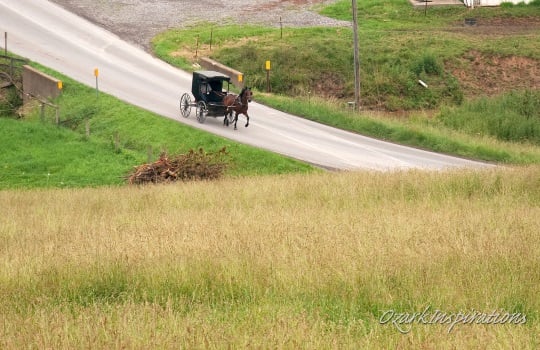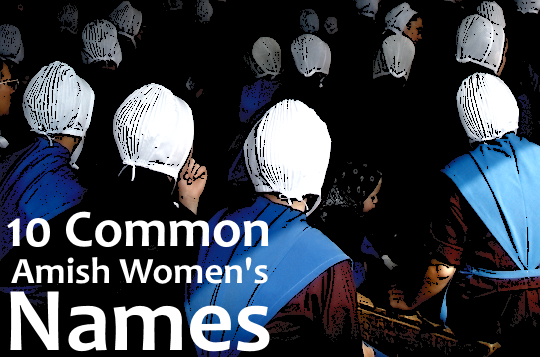More On The Amish & Hemp Farming
In a post last month, I wondered if recently-legalized industrial hemp would become a new Amish cash crop – perhaps replacing controversial tobacco, most often seen grown by farmers in the Lancaster County Amish community.
Another article in the Pittsburgh Post-Gazette has shed more light on Amish involvement in hemp cultivation, now essentially in its first year being legally raised like any other crop.
Industrial hemp, which is related to marijuana but which by law must contain less than 0.3% THC (versus THC levels of 5% to 20% in marijuana) offers the prospect of a high-return crop which Amish can cultivate on limited acreage, thus helping to pay off farm mortgages in an area where land prices are sky-high.
One question I had then is, how many Amish are involved? That’s still not made clear, but it sounds like a good bit more than the two farmers mentioned in the original article:
“A lot of the folks with hemp are Amish who are growing it for investors,” said Mr. Graybill. “We are by far the largest county in the state as far as acreage and investment. We have a lot to gain — or a lot to lose. But I’m still hopeful.”
Lancaster County is called a “historic capital of hemp” in the piece, and it’s being plugged as a key area for the new industry. Lancaster city will host the first-ever Pennsylvania Hemp Summit in a few days. Indeed, even local township names – East and West Hempfield – reflect the area’s hemp-growing roots.
What kind of money can be made? Some suggest that hemp could bring in $50,000 an acre, while one expert proposes a more conservative figure in range of $10,000 would be more realistic.
Still, that is a lot more than the several hundred dollars per acre that corn brings, and would handily beat tobacco, which yields “a couple thousand an acre.”
What else makes hemp cultivation attractive? It seems that Lancaster locals are seeing hemp as a way to preserve the agricultural nature of the county in the face of development pressures, a long-running concern.
There is also the “natural-medicine appeal” of CBD oil, a currently trendy product made from hemp which has been attributed with positive effects on ailments as diverse as anxiety, seizures, pain, and insomnia:
The Amish see hemp as a way to preserve their agricultural futures, he said. The former hemp farmlands in the townships of East and West Hempfield are now largely planted with tract homes. There’s hope that hemp might save large swathes of farmland in the rest of Lancaster County.
The Amish initially were reticent about hemp’s similarity to marijuana, and concerned about marijuana’s psychoactive THC. “But once they understood that the CBD in hemp was good for you, they said ‘OK, I get it. I’m all in’.”
It sounds as if English and Amish are partnering together in many instances, via co-ops or direct partnerships. One English farm family profiled describes the labor-intensive approach their Amish partners bring:
The Stehmans partnered with their Amish neighbors. They are harvesting hemp by hand, using saws to cut through the thick and bushy stalks, some of which are up to four inches in diameter.
“All of our cultivation and irrigation was laid by horses,” she said. “The ground was worked by horses. Everything is horses and hands.”
Stehman’s Amish neighbors are trying to learn everything they can about hemp. “They were really interested in the medicinal aspects of it. It’s a crop we, and they, feel good about growing. And with the fiber and the grain it will go on to help the world. That’s a big reason why we’re all in it.”
Again the natural medicine appeal appears in this anecdote – something that stands in stark contrast to harmful tobacco, which many Amish object to.
Optimism and enthusiasm for the potential of the burgeoning hemp market come through strong in this piece.
Still, nothing is guaranteed, and there is risk involved, as with any crop. A glut of producers chasing a hemp “gold rush” could also mean that prices end up nowhere near expected levels.
So it remains to be seen whether this becomes a new foundation of Amish agriculture, at least in high-dollar-real-estate places like Lancaster County, or if it is destined to be a niche crop or passing fad.
But if it does prove a success for those Amish who raise it, expect to see more jump on the hemp bandwagon, and perhaps not just in Lancaster County.









Hemp
I understand why the Amish are able to justify the growing of hemp and the medical power of CBD. But I am confused as to how they justify growing tobacco. Is tobacco used for anything other than smoking or chewing, which I think would go against their morals and principles?
Hemp vs. Tobacco
Well, good question, it’s controversial for that reason – it’s a “vice” product that is ultimately harmful to people’s health. I think those who raise it justify it by saying that we need to keep our families on farms, and this is a cash crop which can help us do that in the face of sky-high land prices.
And also, the actual processing of the leaves – not just the planting and harvesting, but the separating and grading of the leaves which happens in the colder months – is something that the family can do together, which Amish families can also consider a plus (that’s how one of my tobacco-farming friends seems to feel about it).
But I could easily see hemp taking its place if the experiences of farmers in the first year or two are positive.
More on the topic – this article includes a visit to Amish farmer Ben King, who both raises hemp and uses CBD products (and looks like hemp will be going in his family’s meadow tea soon):
https://www.bicycling.com/culture/a29573945/floyd-landis-cbd/
“Ben’s interest runs deeper than just cash. Jake Sitler, 30, the company’s business director who also runs Lancaster County operations, hands him an assortment of Floyd’s of Leadville products, including a CBD tincture and a bottle of CBD gummies. Ben uses them to combat the aches and pains that come with working 16-hour days on his 100-acre farm. Holding up a hemp flower that fell on the ground, he says he plans to dry it and add it to the family’s “meadow tea,” a traditional Amish concoction made from foraged plants and herbs. After all, it’s just another weed.”
Excuses to get high.
I’ve tried the hemp tea. There is nothing special about it other than the hype surrounding it.
I tried different brands and still the same. Over-rated.
Some brands add sugar or other ingredients to add to taste. But simply an overrated, over-hyped drink.
Floyd Landis has a long history of questionable and illegal behavior. I would not use him to endorse anything. Seems he just wants money and an excuse to get high. Lol.
Tests done so far show cannabis does nothing to cure cancer and that it might actually interfere with cancer fighting drugs.
The part of the plant that does not get you high has shown promise with helping some health issues but again, not a miracle drug.
I somehow wasn’t surprised to see Landis pop up in this industry, even though these products are not supposed to have drug-like effects owing to the low THC. Never tried any of this stuff though CBD/hemp seems to be popping up everywhere.
Ben King seems to be a believer though in the CBD gummies. So flash forward a year or two, maybe we start seeing CBD Shoofly pie at Amish stands in Lancaster County.